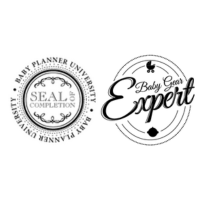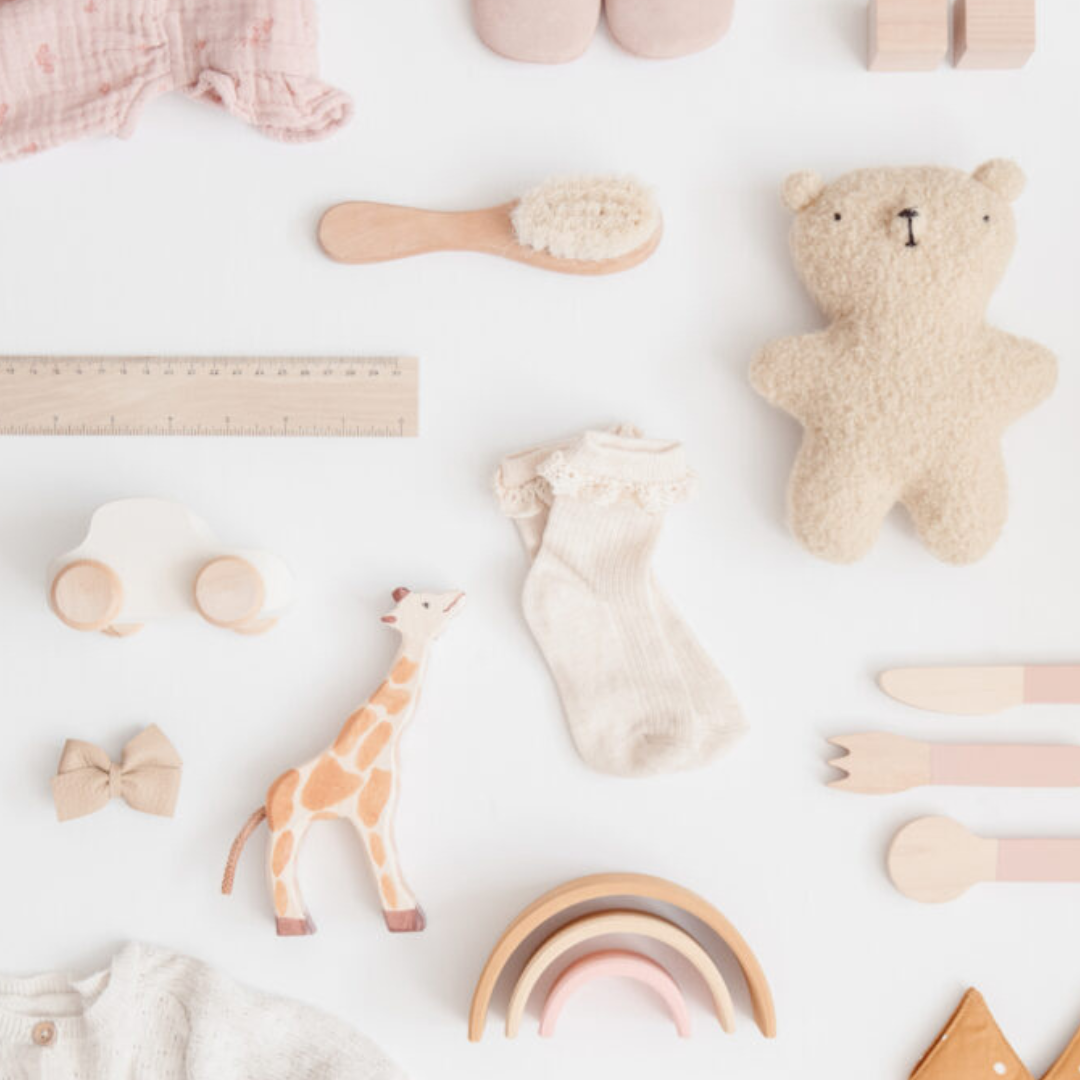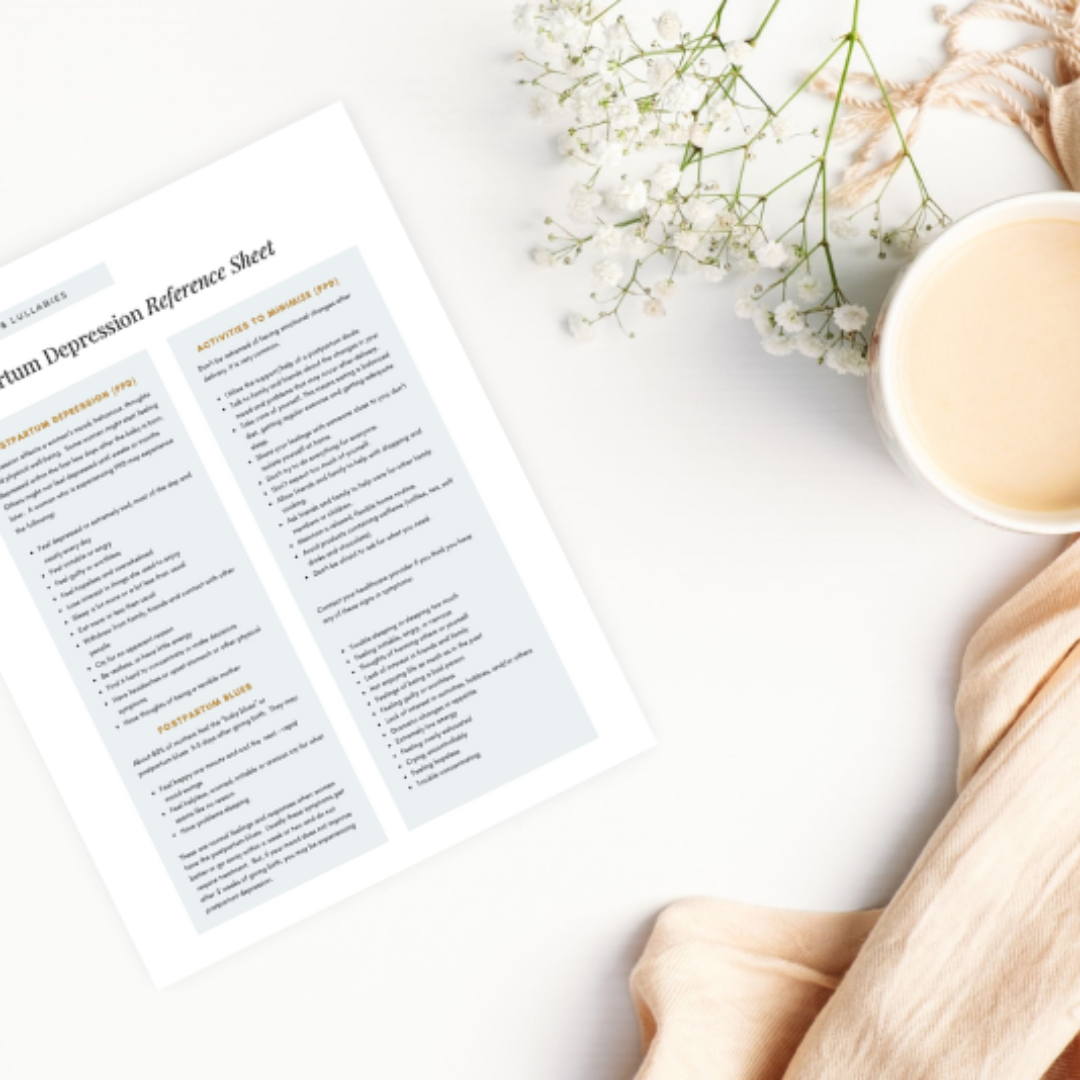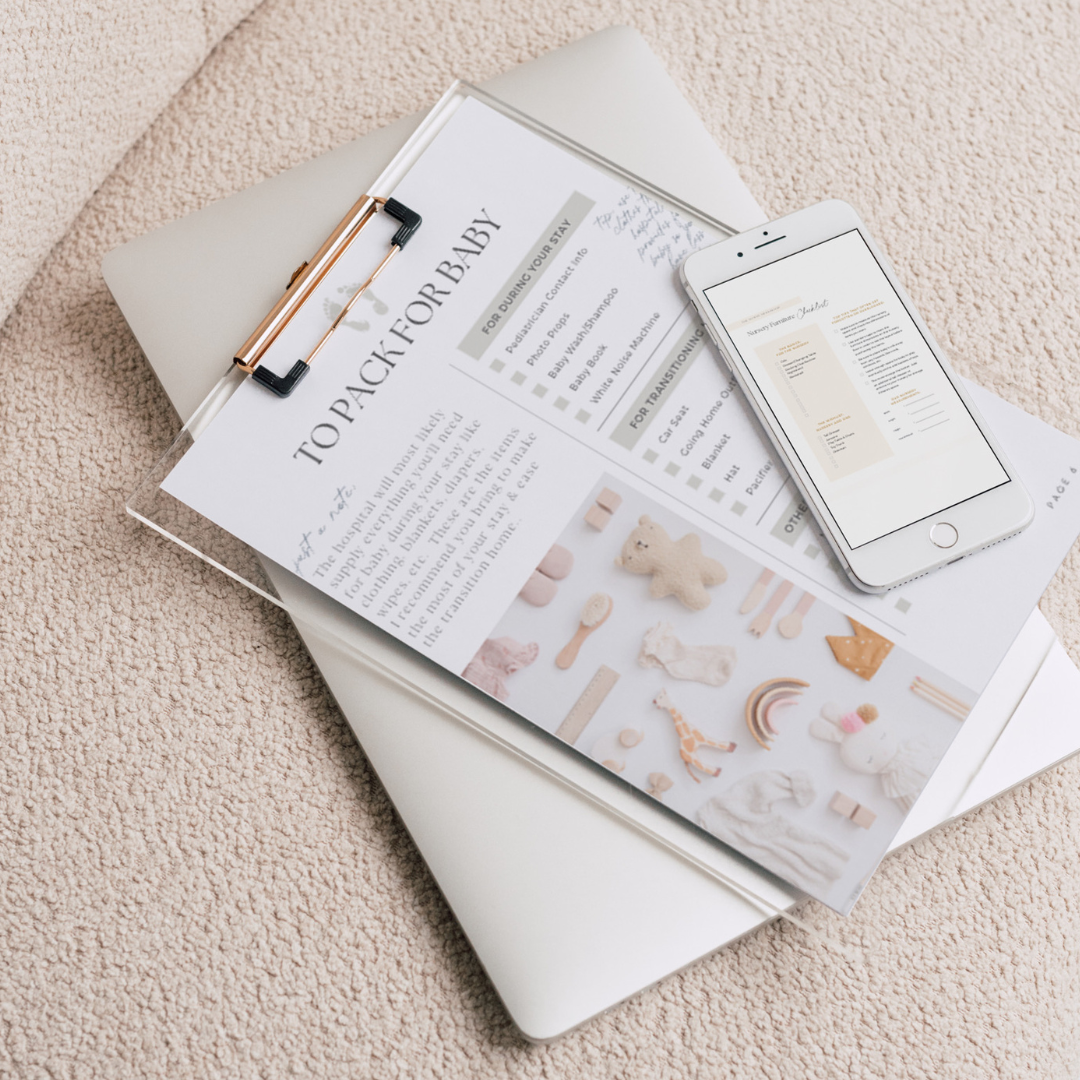Here’s 10 important things to do before your baby makes his or her big debut. Take it from this Mother Baby nurse, you’ll definitely want to add these to your to do list…
This post contains affiliate links to some of my favorite products for babies & mommies. To read my disclosure policy click here.
Discuss Your Expectations With Your Partner
Before the baby makes his or her big entrance into the world, take the time to discuss your expectations with your partner/family. How much {or how little} do you expect your partner to participate in the care of your baby? You may be expecting him to pull all-nighters with you, change poopy diapers, and more. But, the big question is, does he know that? ?
After working in Mother Baby as a nurse for the last several years, one thing I’ve noticed is that many new parents neglect to discuss their plan and preferences for the baby with each other beforehand.
How do you plan to feed your baby…breast, bottle, or both? What do you think about vaccines? If having a boy, do you want to circumcise him or not? Do you want visitors in the hospital, or would you prefer to be more private?
Having an open honest discussion with your hubby prior to the baby’s birth-day, will alleviate any additional stress, and optimize your chances of having the experience you’re desiring while in the hospital and beyond.
Take A Birthing/Baby Care Class
I cannot emphasize enough how important it is to educate yourself on what to expect during pregnancy, birth, and early Mommyhood.
Your time in the hospital goes by so quickly. You’re generally exhausted from labor, and suddenly trying to take a crash coarse in all things baby , which is really hard to do.
Learning all about birth, and developing a plan for that part of this process is a good idea. But, don’t neglect the very important time after birth, when you now have to care for another human being.
Take classes, read books, watch YouTube videos…do whatever you have to do to learn as much as you can about this process before you are staring it right in the face. You’ll thank yourself later.
Most hospitals offer birthing and baby care classes. Check without your local hospital for their programs.
Pick A Pediatrician
A lot of brand new parents forget about this important decision. Then, you’re relishing in the birth of your precious bundle of joy, when the nurse asks you, “who’s your baby’s pediatrician?” What?!
Yes, before you have your baby, you need to select a pediatrician. The baby’s doctor will need to visit the baby in the hospital, and do an exam after birth, as well as get everything together that you’ll need to be discharged from the hospital.
Ask your friends and family who they recommend. Your OB/Midwife may have some options for you as well. And, most pediatricians offer tours and meet & greets that allow you to get acquainted before your baby arrives.
Install The Infant Car Seat In Your Vehicle
You need to have an infant car seat, in order to take your baby home from the hospital. But, what a lot of new parents don’t realize, is that typically the hospital staff cannot help you install your car seat. Only certified car seat installers should be assisting you with the installation of your car seat, and to obtain that certification, staff go through rigorous training.
So, once you buy your car seat, open the box (sounds simple, I know, but you’d be surprised how many new parents bring their car seat into the hospital in the box ?), get familiar with your seat and the instructions, and install the base in your car. To verify that you’ve installed it correctly, take your car to a fire station and ask them to check it. Some hospitals or baby stores also host car seat checks, so check your local area for upcoming events.
{This website also has a lot of information about carseat safety. Check it out!}
Set Up A Safe Place For The Baby To Sleep
When you bring your baby home, quite honestly, they don’t need much. A few diapers, and changes of clothes. Add in some nutrition from you or from formula, and lots of warm snuggles, and really they’re all set. Those fancy baby registries…are they really necessary? Probably not…but those MamaRoo bouncy seats & City Mini
strollers are so cool!
One thing you should consider, though, is a safe place for your baby to sleep. We encourage our parents to have a crib or bassinet set up, with no blankets, stuffed animals, or bumper pads. Suffocation is a hazard that no one wants to ever deal with, so we encourage nothing to be in the crib with the baby.
Try swaddling your baby in light breathable muslin blankets , or better yet, a sleep sack
. The baby should be laid on their backs for safe sleep. The way that a baby’s airway is developed as a newborn, suggests that the back is the safest position for the baby to sleep in…even though they may enjoy being on their tummy more.
Getting a baby to sleep on their back in a bassinet or crib, sometimes is easier said than done. Try a white noise machine, or even this soothing mat. Sleeping alone in a safe environment is the best way to prevent SIDS. To read more about Back to Sleep, click here.
Tour The Hospital Where You Plan to Deliver
It’s always a good idea, in my opinion, to tour the facility where you plan to deliver your bundle of joy. Scope out the parking situation, where to check in, and the quickest way to get where you need to go on the “big day”.
Feel free to ask questions, and get a feel for the staff, the hospital, and what the overall experience might be like. I think taking a tour of the hospital…seeing the labor rooms, seeing the NICU, and meeting with some staff…can greatly decrease your anxiety about your birth experience, and make you feel more prepared for when you do go into labor.
Learn Infant CPR
Nobody ever wants to think about having to give life-saving CPR to anyone, let alone their own child. But, unfortunately, sometimes it’s necessary. And, I think it’s better to be prepared for the unthinkable, than to have no clue what to do if you’re ever in a situation where your baby stops breathing.
It’s important that both you and your partner, become Infant CPR certified. You can take classes at your local hospital, and in the community. Classes are offered in a myriad of places, from schools to churches, to Babies ‘R Us. To find a class near you, check out this website.
Pack Your Bag For The Hospital
It’s probably a good idea to pack your bag sooner rather than later, and have it waiting in your car (with your securely fastened car seat, of course ?). Believe it not, many women go into labor prematurely, sometimes several weeks before their due date. So, be prepared, by having your bag packed and ready to go.
After working as a mother baby nurse for several years, these are several things moms have mentioned they wished they’d brought to the hospital….a change of comfy clothes; hair ties; chapstick; mints; toothpaste & toothbrush; shower items; socks; a couple of changes of clothes for the baby; etc.
Hang Out With Other Moms & Babies
We have many new moms coming into the hospital to have their babies, who’ve never been around other babies, let alone changed a diaper, burped, or fed a tiny human.
If you fall into that category, can I encourage you to connect with other new moms? Spend some times with friends or family members who’ve received entry had babies, and pick their mommy brains. Offer to babysit their little ones, and get in a little parenting practice.
And, if that’s not an option for you, join some community Mommy groups, watch YouTube videos, and/or take a baby care class. All of which will help you feel a little more comfortable caring for your own newborn.
Nap!!!!
Despite what people tell you, newborns do not sleep. Not at the beginning, at least. Parents are always shocked when their newborns won’t sleep at night. If I was paid a dollar for the countless times I’ve heard, “but I thought all they did was eat, sleep, and poop”, I’d be a millionaire.
Against popular opinion, babies are awake and feisty at night, right around the time when their exhausted parents are ready for bed.
My advice to you is, take lots of naps while you’re pregnant. And, after the baby comes, take naps when the baby sleeps. Eventually, you’ll be sleeping more normally again, but the timing depends on each individual baby and circumstance. Nap when you can, and preserve your sanity.













7 Comments
These are wonderful tips that every mama-to-be should know about!
Thanks, Tiffany. So glad you enjoyed it. More mommy posts to come.
great tips
Thanks, Allison ?
These are the types of tips I was looking for when I was pregnant! The only tip I would add is try to have a week or 2 of easy to heat and serve (like freezer meals) ready before baby arrives. It makes it easier and less stressful to be able to focus on bonding with baby and resting instead of what you’re going to eat. 🙂
That’s an awesome tip, Michelle. Thanks for reading. ?
Great tips! I needed this kind of help when my boys were born 🙂